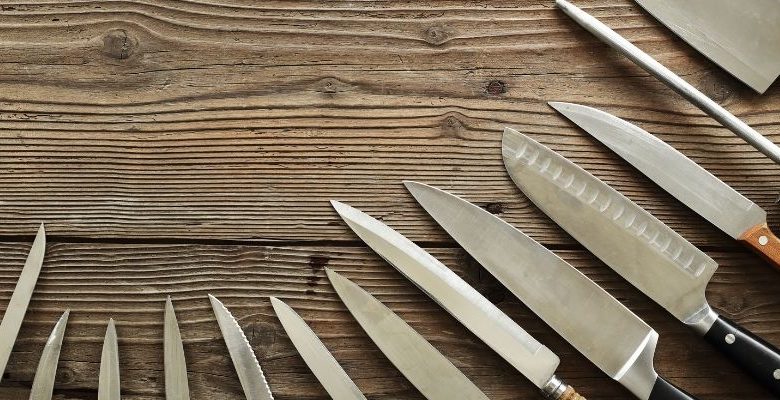How To Keep Your Kitchen Knives Last A Lifetime

A high-quality kitchen knife should last a lifetime or often even longer if taken care of properly. Here is how to get the maximum benefit out of your kitchen knives and make them last:
Understanding Your Kitchen Knife
Kitchen knives are meticulously designed to be thin slicers that easily, efficiently, and quickly cut food. To attain high efficiency, kitchen knives are made with a thin edge. Here the thing to realize is that your knife’s edge has a certain lifespan. Hence the more the edge touches, the shorter its span will be. Even the normal use is going to dull the blade with time eventually. Moreover, the harder materials can dull the blade significantly at a higher rate.
Always Use A Cutting Board
If you want to keep your knife longer than average, always employ a cutting board to accomplish your tasks. The perfect cutting board should be gentle on your knife and made of high-quality wood or plastic. Bamboo, teak, and walnut boards work best and are perfectly safe from bacteria. Soft boards make cutting easy and gentle, while harder ones reduce your knife edge’s lifespan as you need to cut hard and forcefully.
Always Hand Wash Your Knives
To keep the knife’s edge sharper and better, always hand wash them and dry your knife immediately. Avoid scrubbing it along the edge, and always scrub from the back of the edge. While washing knives, let the soap sit for at least 30 seconds to kill and break down the germs. Employ a brush to clean serrated knives. Use a cotton drying towel to get them dried properly.
Store Your Knives Carefully
Do not store your knives in a utensil drawer or soapy sink water, as it will cause damage to the knife. Instead, store your knives safely in a blade safe, knife block, or on a magnet. While putting in or taking off your knife from the block, make sure that the edge does not touch the block because the edge scraping along the block will turn a knife to dull faster. When placing or removing a knife from your magnet bar, keep the blade spine in contact with the bar. Firstly, remove the blade edge and the spine. While placing a knife on the bar, place the blade first and the edge afterward.
Keep Your Knives Sharp
A sharp working knife is safer to use as it is less likely to cause mishaps while struggling to cut something. But sharpening a knife can be a bit daunting. Mostly chefs employ a honing rod to hone the knives or a stone to sharpen them. Electric sharpeners do not offer a good option for knife sharpening. Here the preferred solution is to take dull blades to be professionally sharpened.
Wrapping Up
Quality knives deliver an important yet necessary staple of any kitchen. But how these are treated and cared for makes the real difference. Treat them well to cherish the real value for a longer period. Take care of your kitchen knife in the easiest manner. Enjoy a great impact on your cooking experience with safer and sharper knives.
I hope you like our effort. We work very hard to collect all this information just for you. So we hope our hard work will be encouraged by sharing this article with your friends and relatives. I hope this article has discussed all the points in detail; even if we have left something or missed any point, you can inform us by commenting on this article. We will take your suggestions very seriously and try to act according to the suggestion. So it’s a humble request that whatever you feel, write in the comments.




